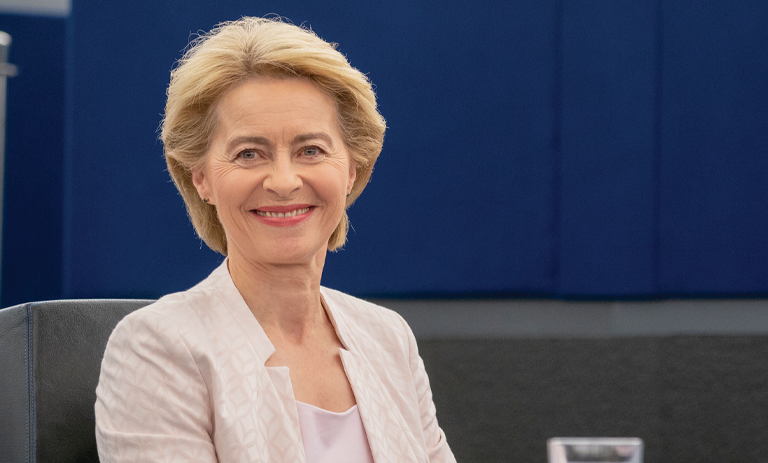Rethinking the European Union’s energy strategy

The European energy market is struggling to ensure a sustainable price and supply of energy for consumers partially, though not exclusively, due to the Russian invasion of Ukraine.
Ursula von der Leyen, President of the European Commission, outlined her ambitions on 7 September 2022 for ensuring that European energy is free of reliance on Russian fossil fuel imports.
The European Union has already set out plans to ensure that reliance on Russian fossil fuels is reduced by two-thirds in 2022 and phased out entirely by 2027, as part of the comprehensive sanctions against the Russian Federation as a backlash against Vladimir Putin’s invasion of Ukraine.
As a result, the EU has already vastly decreased its imports of fossil fuels from Russia, with Norway now already supplying more liquefied natural gas (LNG) to the EU than Russia, as well as increases in investments in homegrown renewables as part of the REPowerEU strategy and has increased its demand storage to 84 per cent, thus curtailing reliance on Russian fossil fuel imports.
In a statement in September, von der Leyen outlined the Commission’s immediate measure to be adapted with the aim of protecting “vulnerable consumers and businesses and help[ing] them adapt”.
Caps on profits and energy use
Firstly, the Commission will propose a mandatory cap for reducing electricity use at peak hours, in what von der Leyen terms as ‘smart savings of electricity’. “What has changed is global supply is scarce. This calls for smart reduction in demand. We need a strategy to flatten the peaks which drive the price of electricity.”
The second proposal is for a cap on the revenues of companies who are producing low-cost electricity. “It is now time for customers to benefit from the low costs of low carbon energy sources, like renewables,” she states.
“Low carbon energy sources are making unexpected revenues, which do not reflect their production costs. We will propose to re-channel these unexpected profits to support vulnerable people and companies to adapt.”
Von der Leyen similarly sets out plans to cap the “unexpected profits” of fossil fuel companies. “Oil and gas companies have also made massive profits. We will therefore propose a solidarity contribution for fossil fuel companies because all energy sources must help address this crisis.”
She continues: “Member states should invest these revenues to support vulnerable households and invest in clean, homegrown energy sources.”
Supporting utility companies to cope with the volatility of the energy market is seen as crucial to ensuring their survival and ability to provide their services. In the President of the European Commission’s speech, she rationalises that utility companies are “currently being requested to provide unexpectedly large amounts of funds, which threatens their capacity to trade and the stability of the future markets”.
“From day one, Europe has stood at Ukraine’s side, with weapons, with funds, with hospitality for refugees, and with the toughest sanctions the world has ever seen.”
To support them, von der Leyen states that the Commission will help to facilitate liquidity support for energy companies within member states and will additionally update the current temporary framework to enable state guarantees to be delivered rapidly.
Maximum economic pressure on Putin
von der Leyen made her State of the Union address one week after her address on energy, where she was accompanied by Olena Zelenska, the First Lady of Ukraine, to emphasise the EU’s support for Ukraine, and to reiterate the measures announced in her policy speech.
Speaking on the Russian invasion of Ukraine, the Commission president stated that: “From day one, Europe has stood at Ukraine’s side, with weapons, with funds, with hospitality for refugees, and with the toughest sanctions the world has ever seen.”
Emphasising the importance for the EU on imposing the maximum economic pressure on Russia, the fifth and final measure von der Leyen outlined in her energy speech was increasing the pressure on the Russian economy and ensuring that the European Union becomes free from the reliance and political capital which comes from its reliance on Russian fossil fuel imports.
This measure may exacerbate the ongoing price inflation for energy supplies, with the EU having a much smaller market to choose from, with the three largest oil producers in Europe – Russia, Norway, and the United Kingdom – all outside the EU.
Von der Leyen states that, since the imposition of the sanctions programme against the Russian Federation, that gas imports from Russia into the European Union have fallen from 40 per cent to 9 per cent, whilst the sanctions on Russia mean that all crude oil imports are to be banned from 2023.
Ireland only directly imports 5 per cent of its oil supply from Russia but is susceptible to price increases due to the solidarity measure to which it is bound through the EU, the reliance of Germany on Russian fossil fuel imports, as well as the consequences of the volatility of the market. The solidarity measure is designed to ensure that member states do not have a competitive advantage over one another and keeps the EU operating as a cohesive energy bloc.





